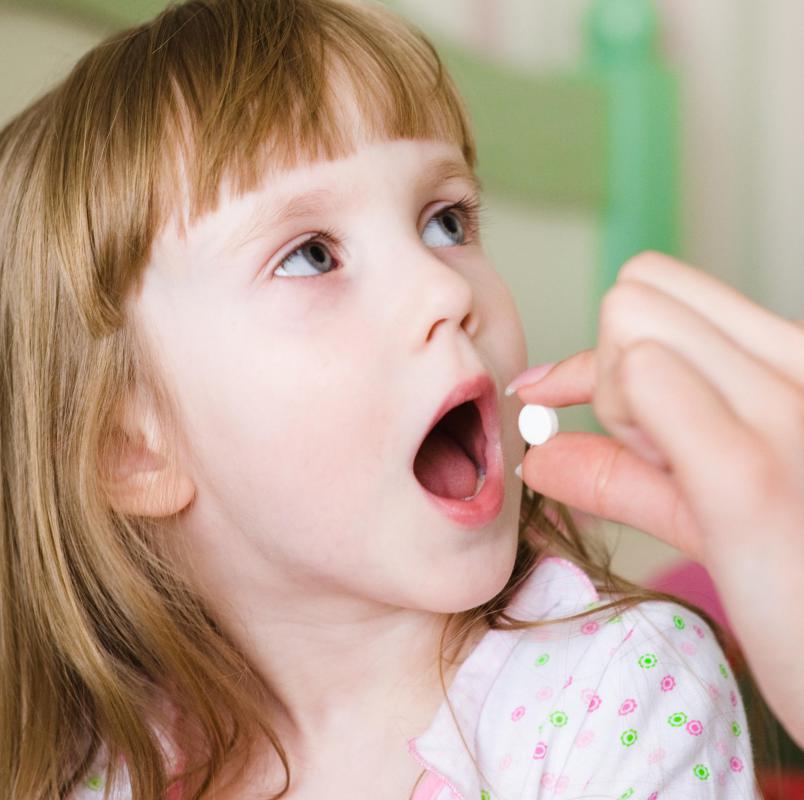At WiseGEEK, we're committed to delivering accurate, trustworthy information. Our expert-authored content is rigorously fact-checked and sourced from credible authorities. Discover how we uphold the highest standards in providing you with reliable knowledge.
What Factors Affect Ritalin® Dosage?
Methylphenidate, a stimulant medication, is commonly found in the brand name formula called Ritalin®. Medical conditions like attention deficit hyperactivity disorder (ADHD) and narcolepsy are sometimes treated with this drug. A number of factors can potentially influence the Ritalin® dosage that is appropriate for an individual patient, such as age, body weight, and tolerance to the medicine.
Stimulants like Ritalin® can often help people with ADHD concentrate on specific activities, and are often considered an appropriate treatment for both adults and children with this condition. Children are most often associated with having ADHD, and normally start with a lower Ritalin® dosage of 5 milligrams (mg), taken two times a day, in the morning and afternoon, with food. Depending on body weight, the severity of the symptoms, and natural response to the drug, the amount may have to be increased in order for a child to experience benefits from this medication. In such cases, the total daily dose is usually increased by 5 mg or 10 mg once a week until the ADHD symptoms improve. Due to the potential for side effects, children do not normally take dosages over 60 mg per day.

Adults may suffer from ADHD as well, but often require a larger Ritalin® dosage than children do. At first, adults normally take 10 mg to 15 mg, two times a day, with food. As with children, body weight or the response to the medication may require that this amount is increased to doses of 20 mg to 30 mg taken twice every day. Alternately, some adults may experience unpleasant side effects at even a 10 mg dosage. In this case, 5 mg taken one to two times a day may prove sufficient to alleviate their symptoms.

After some time taking this medication, individuals may sometimes develop a tolerance to it, where the usual dose no longer provides the same level of relief from symptoms. This occurrence may require an increase in Ritalin® dosage slightly to control symptoms. Often, the total daily dose will be 5 mg to 10 mg greater than the previous amount. This dose may be increased once per week until the symptoms are controlled again.

Ritalin® can be taken in an extended release formula, meant to control symptoms for longer periods of time. The dosing for the extended release version is slightly different from the alternate formula. Instead of taking a divided dose, two times a day, a patient often takes a Ritalin® dosage equal to their total divided dose just once per day.
AS FEATURED ON:
AS FEATURED ON:















Discuss this Article
Post your comments